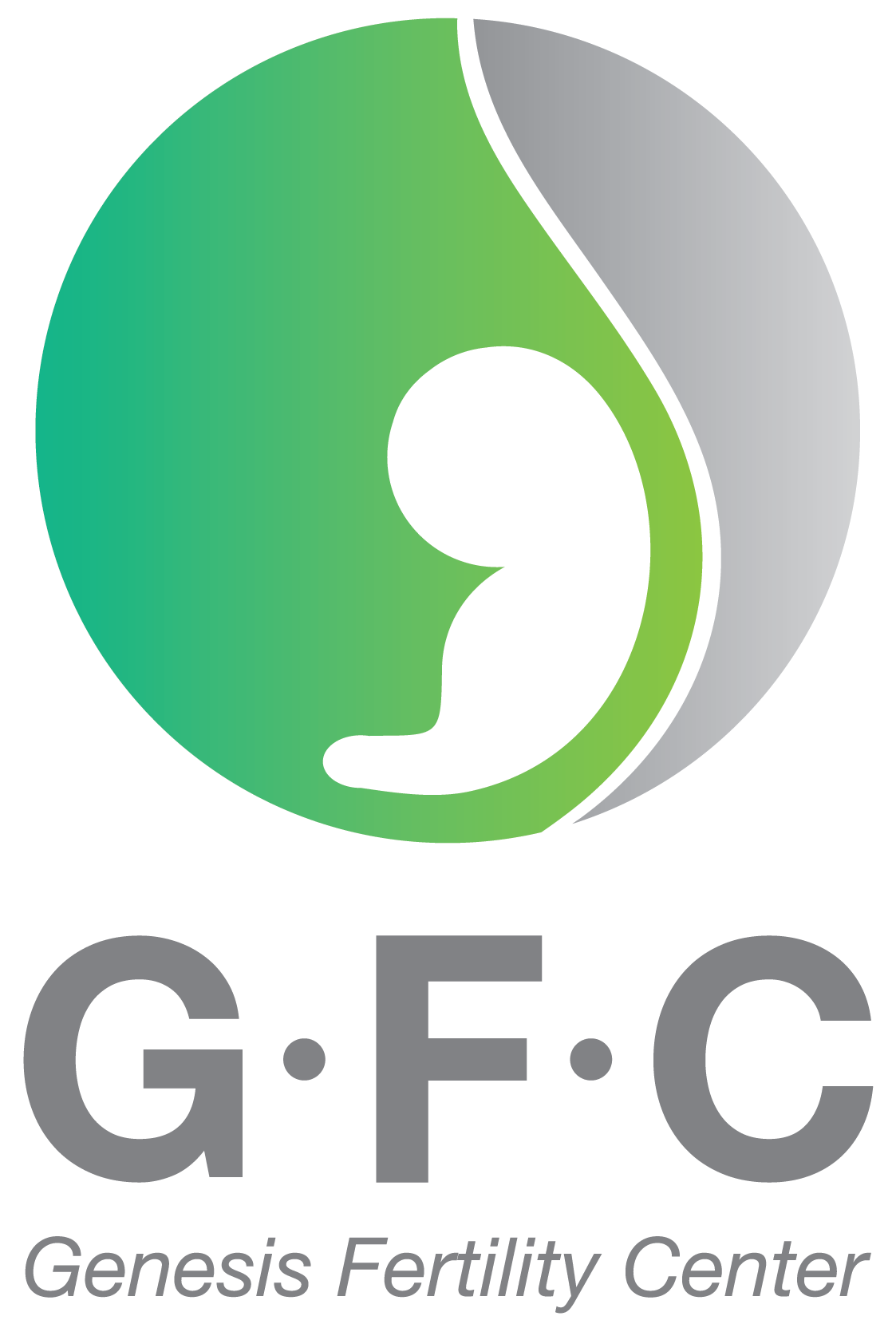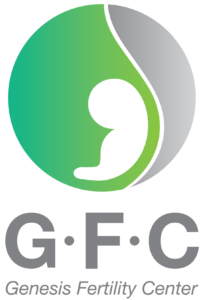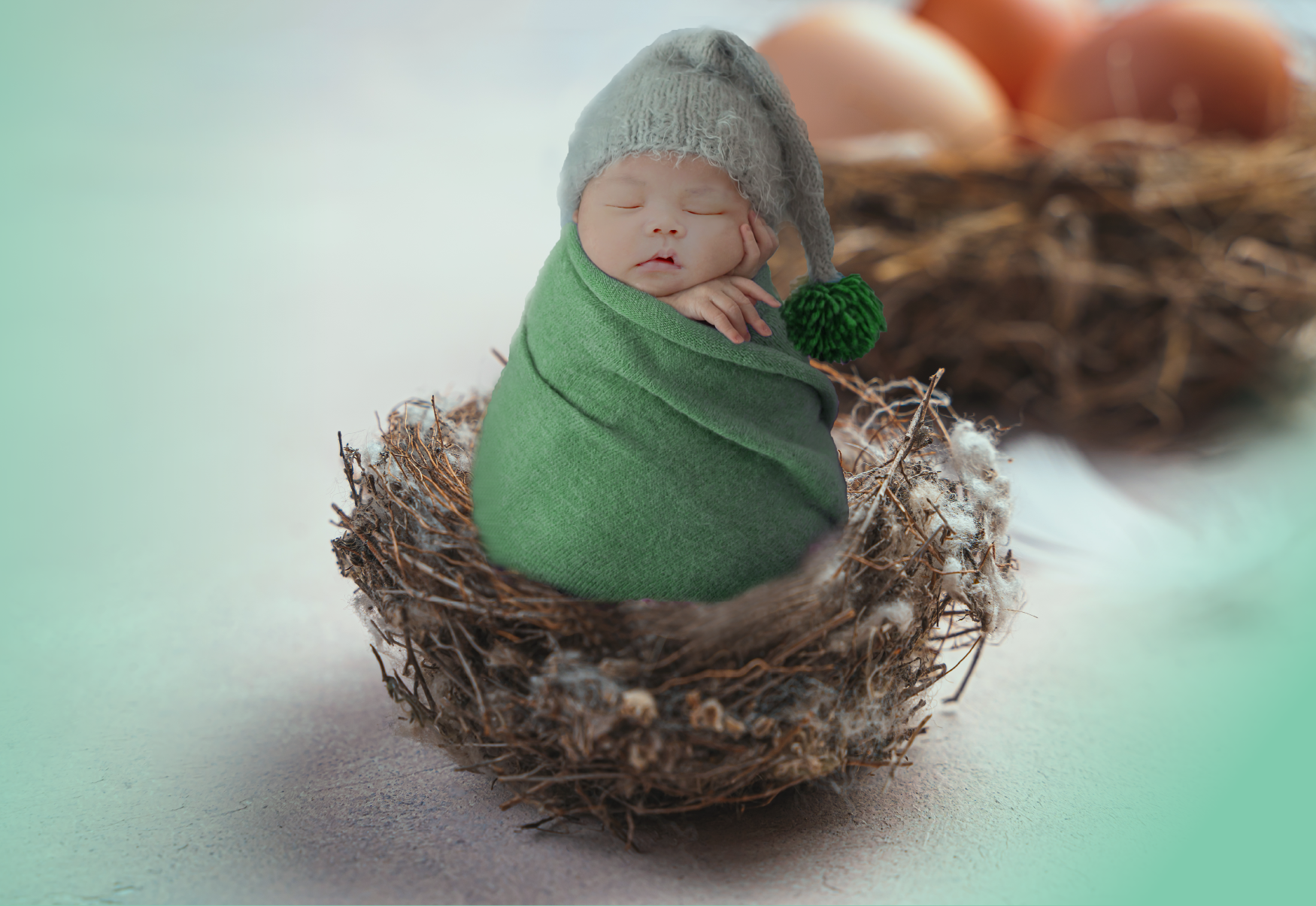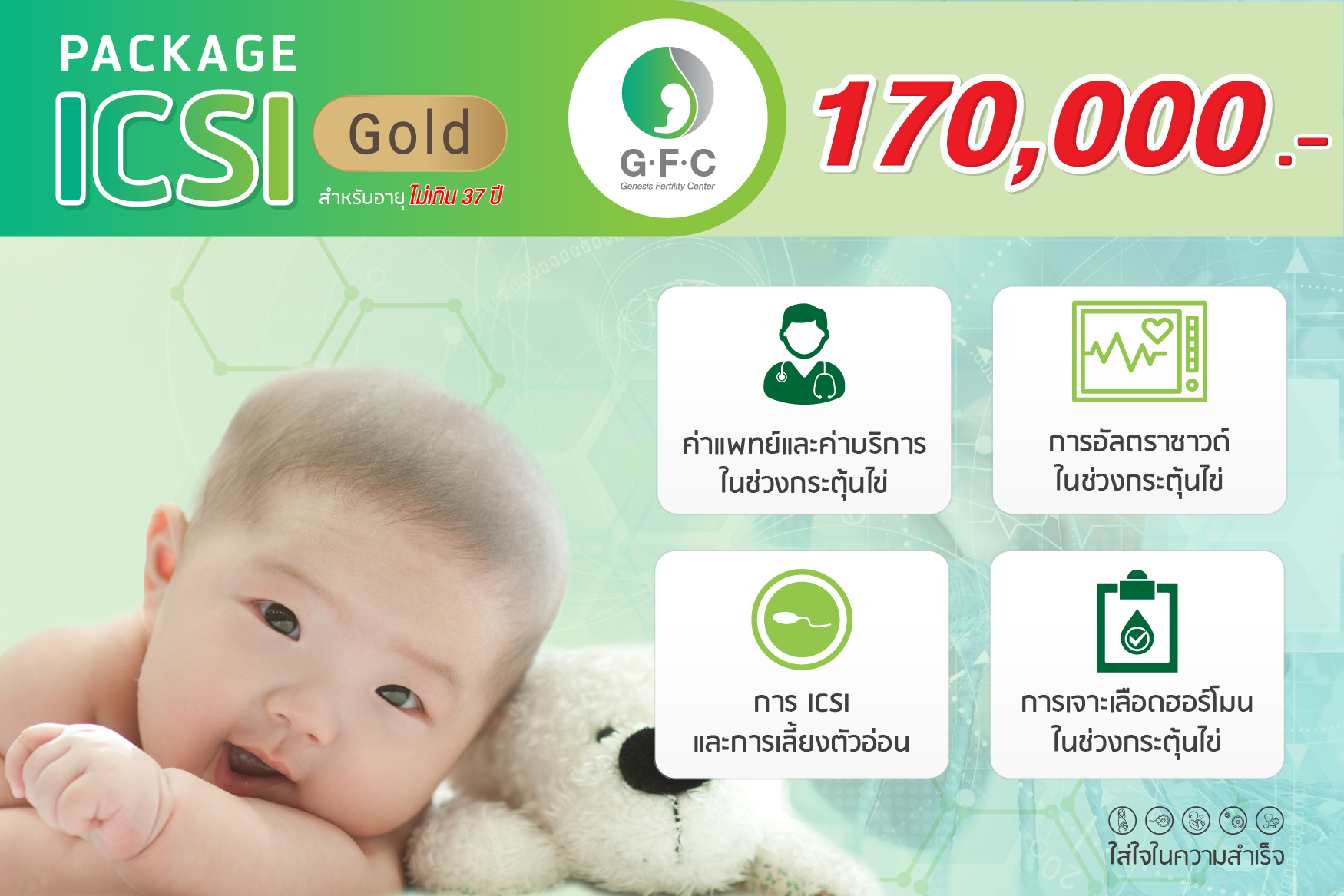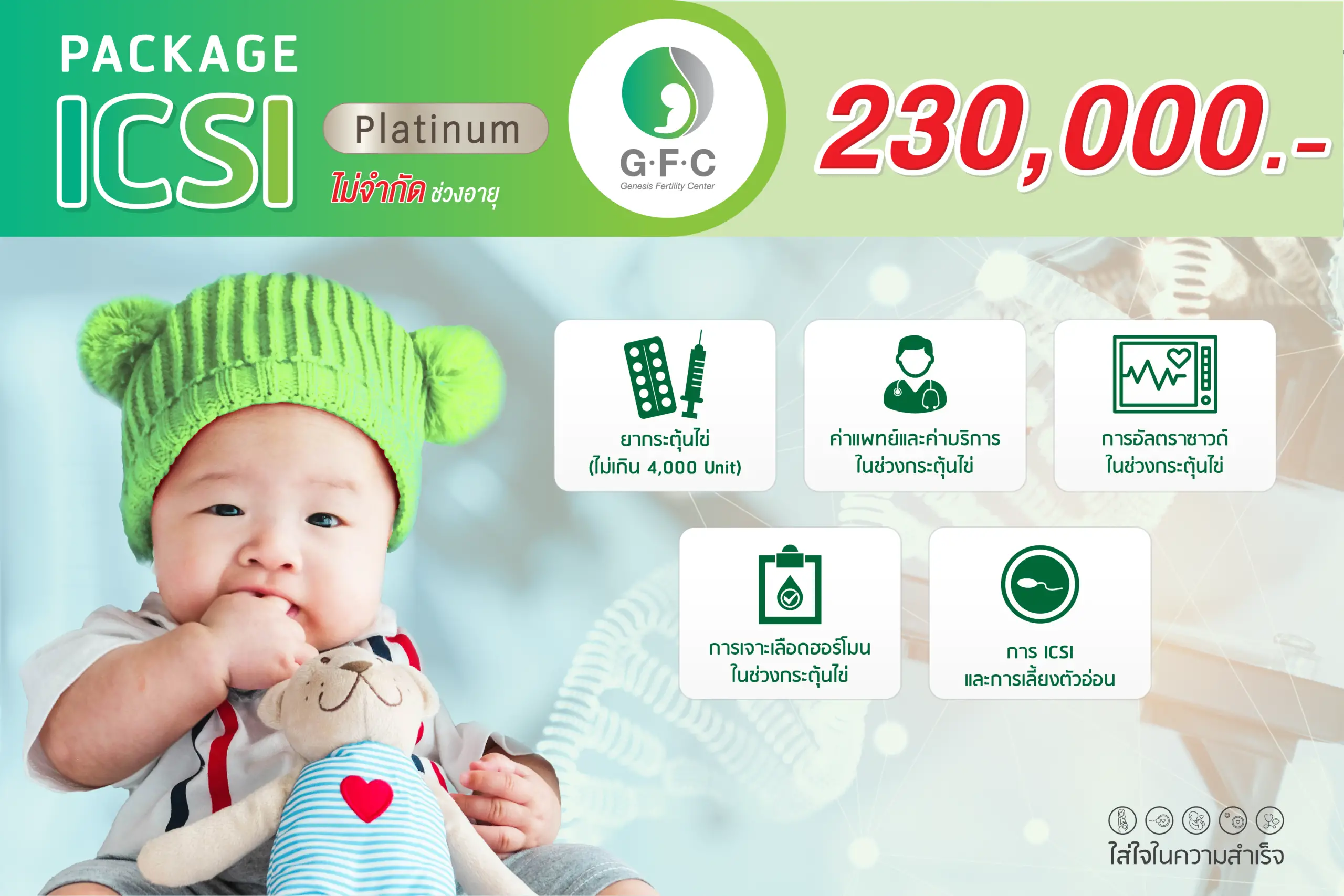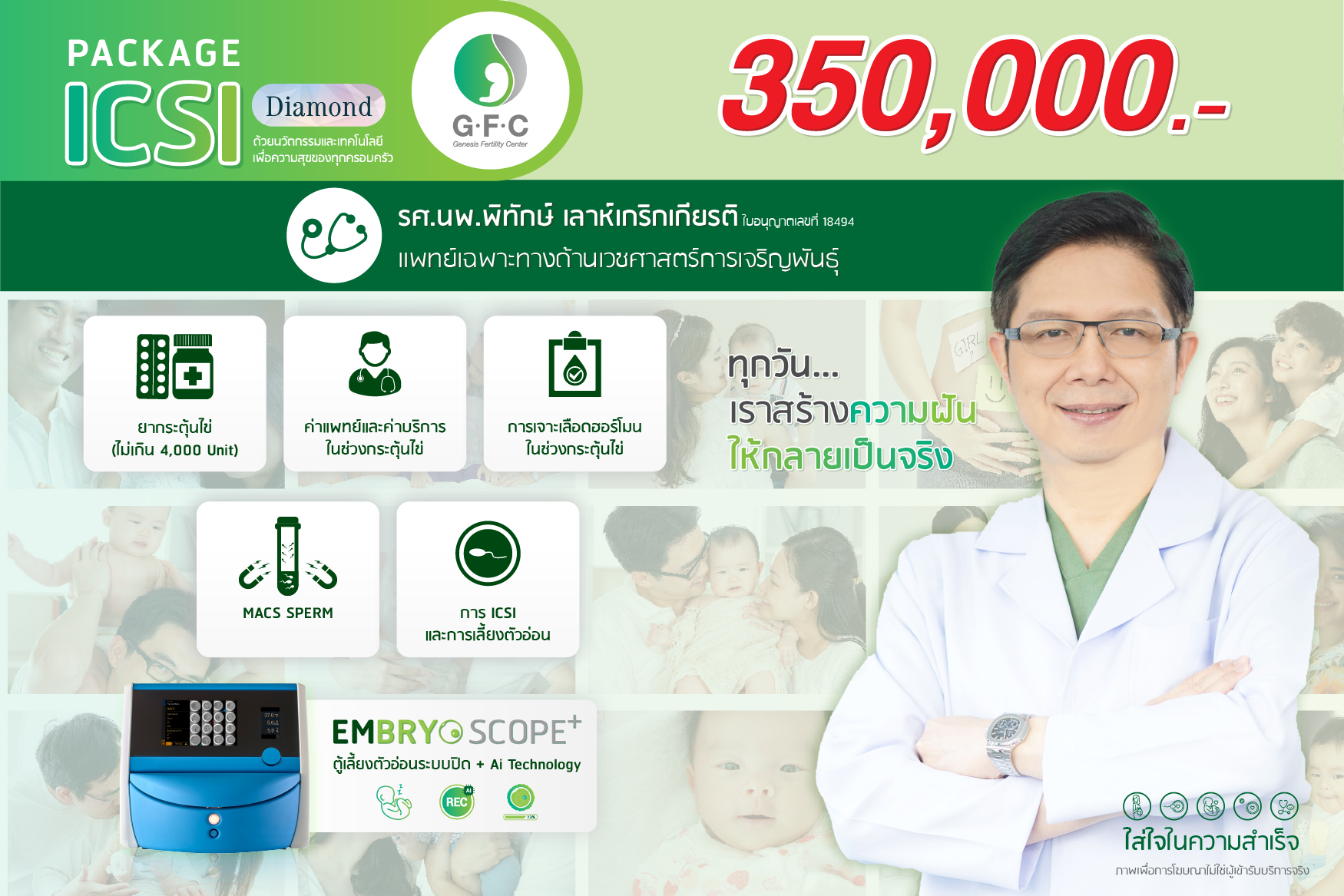ฝากไข่ คืออะไร?
ฝากไข่ (Oocyte Cryopreservation หรือ Egg Freezing) หรือ การแช่แข็งเซลล์ไข่ เป็นหนึ่งในวิธีที่ช่วยรักษาคุณภาพเซลล์ไข่ผู้หญิง เพื่อให้สามารถเก็บไข่เอาไว้ใช้สำหรับการตั้งครรภ์ในอนาคตได้ โดยแพทย์จะทำการดูดเอาไข่สุขภาพดีของผู้หญิงในวัยเจริญพันธุ์ออกมาจากรังไข่ และนำไปแช่แข็งไว้ที่อุณหภูมิ -196 องศาเซลเซียส และจะนำไข่ออกมาเพื่อใช้ปฏิสนธิกับอสุจิฝ่ายชาย เมื่อผู้ฝากไข่ต้องการตั้งครรภ์
ทำไมถึงต้องฝากไข่
ตามธรรมชาติแล้วเมื่ออายุเพิ่มขึ้น ไข่ของผู้หญิงจะมีคุณภาพน้อยลงและมีการลดจำนวนลงเรื่อยๆ โดยเฉพาะผู้หญิงที่มีอายุตั้งแต่ 35 ปีขึ้นไป ส่งผลให้เกิดการมีบุตรยากขึ้น ถ้าหากว่าอายุเกิน 40 ปีแล้วไม่มีประจำเดือน นั่นคือการก้าวสู่วัยทอง (Menopause) รังไข่จะเริ่มหยุดการทำงาน ดังนั้น ผู้ที่ต้องการวางแผนจะมีลูกควรเข้ารับการฝากไข่ให้เร็วที่สุด ไม่ควรเกินอายุ 40 ปี แต่หากว่าอายุประมาณ 45-55 ปี ก็สามารถฝากไข่ได้ ทั้งนี้ควรเข้ารับการปรึกษากับแพทย์โดยตรง การฝากไข่สามารถวางแผน และเลือกช่วงเวลาการมีลูกที่จะเกิดขึ้นในอนาคตได้ โดยเฉพาะผู้หญิงที่มีอายุระหว่าง 20-35 ปี เพราะจะช่วยลดความเสี่ยงของลูกที่อาจเกิดมามีความผิดปกติของโครโมโซมเนื่องจากอายุที่มากขึ้นอีกด้วย
ยิ่งเราฝากไข่เร็วเท่าไหร่ไข่ก็จะยิ่งมีประสิทธิภาพช่วยเพิ่มโอกาสในการตั้งครรภ์ ต่อให้เรามีอายุที่เพิ่มมากขึ้น ก็ยังสามารถใช้ใข่ในอายุที่น้อยกว่าได้ เช่น เมื่อมาฝากไข่ตอนอายุ 30 ปี แต่ยังไม่มีแผนตั้งครรภ์ ก็สามารถเก็บไข่แช่แข็งในช่วงอายุ 30 ปีไว้ได้ หากอายุ 40 ปี และพร้อมมีลูก ก็สามารถนำไข่ในอายุ 30 ปี มาใช้สำหรับการทำเด็กหลอดแก้ว ICSI เพื่อการตั้งครรภ์ในอนาคตได้
นอกจากนี้ค่านิยมการมีลูกเปลี่ยนไป ผู้หญิงในปัจจุบันนิยมแต่งงานช้าลง มีลูกช้าลง เนื่องจากปัจจัยทางสังคมต่างๆ ทำให้ความพร้อมในการมีลูกช้าลง บางคนก็อายุมากแล้ว แต่ในทางกลับกันสภาพร่างกายคนเราจะลดประสิทธิภาพลงเรื่อยๆ ดังนั้นผู้ที่วางแผนจะมีบุตรจึงควรเข้ารับการฝากไข่ตั้งแต่เนิ่นๆ
ใครบ้างที่ควรเข้ารับการฝากไข่
- ผู้ที่ยังไม่พร้อมที่จะมีลูกในตอนนี้ หรือผู้ที่วางแผนจะมีลูกในอนาคต
- ผู้ที่ต้องการมีลูกด้วยการทำเด็กหลอดแก้ว ICSI IVF ในอนาคต
- ผู้ที่มีโรคเรื้อรังบางอย่าง หรือเป็นโรคมะเร็ง ที่ต้องรักษาด้วยการให้ยาเคมีบำบัดหรือการฉายแสงซึ่งอาจจะเป็นอันตรายต่อรังไข่ได้
- ผู้ที่มีปัญหาต้องได้รับการผ่าตัดรังไข่ เช่น เป็นซีสต์ มีเนื้องอกที่รังไข่ ซึ่งจะทำให้มีจำนวนไข่ลดลงหลังการผ่าตัด
- ผู้ที่มีปัญหาทางพันธุกรรม ทำให้รังไข่เสื่อมเร็ว หรือเข้าสู่วัยหมดประจำเดือนเร็ว ในกรณีนี้ควรสังเกตคนในครอบครัว ถ้าแม่หรือพี่สาวที่เข้าสู่วัยหมดประจำเดือนเร็ว เราก็มีแนวโน้มที่จะมีภาวะรังไข่เสื่อมเร็วได้เช่นกัน
- ผู้ที่เข้าข่ายภาวะมีบุตรยาก
ทำไมผู้หญิงถึงเลือกวางแผนมีลูกควรฝากไข่
ทำไมผู้หญิงที่เลือกวางแผนมีลูกในอนาคตควรฝากไข่? ตามธรรมชาติแล้วเมื่อผู้หญิงมีอายุเพิ่มขึ้น ไข่ของผู้หญิงจะมีคุณภาพน้อยลงและมีการลดจำนวนลงเรื่อยๆ โดยเฉพาะผู้หญิงที่มีอายุตั้งแต่ 35 ปีขึ้นไป ส่งผลให้เกิดการมีบุตรยากขึ้น ถ้าหากว่าอายุเกิน 40 ปีแล้วไม่มีประจำเดือน นั่นคือการก้าวสู่วัยทอง (Menopause) รังไข่จะเริ่มหยุดการทำงาน ดังนั้น ผู้ที่ต้องการวางแผนจะมีลูกควรเข้ารับการฝากไข่ให้เร็วที่สุด ไม่ควรเกินอายุ 40 ปี แต่หากว่าอายุเกิน 40 ปีก็สามารถฝากไข่ได้ แต่ทั้งนี้ควรเข้ารับการปรึกษากับแพทย์โดยตรง
ยิ่งเราฝากไข่เร็วเท่าไหร่ไข่ก็จะยิ่งมีประสิทธิภาพช่วยเพิ่มโอกาสในการตั้งครรภ์ ต่อให้เรามีอายุที่เพิ่มมากขึ้น ก็ยังสามารถใช้ใข่ในอายุที่น้อยกว่าได้ เช่น เมื่อมาฝากไข่ตอนอายุ 30 ปี แต่ยังไม่มีแผนตั้งครรภ์ ก็สามารถเก็บไข่แช่แข็งในช่วงอายุ 30 ปีไว้ได้ หากอายุ 40 ปี และพร้อมมีลูก ก็สามารถนำไข่ในอายุ 30 ปี มาใช้สำหรับการทำเด็กหลอดแก้วเพื่อการตั้งครรภ์ในอนาคตได้
การเตรียมตัวก่อนฝากไข่
การเตรียมตัวก่อนเริ่มกระบวนการฝากไข่มีดังนี้
- รับประทานอาหารที่เป็นประโยชน์ แป้งน้อย น้ำตาลน้อย อาหารที่มีโปรตีนสูง ลดขนมขบเคี้ยว การเลือกรับประทานอาหารที่มีประโยชน์จะช่วยสร้างสมดุลให้กับร่างกาย
- ไม่ควรรับประทานอาหารหลัง 6 โมงเย็น
- รับประทานวิตามิน อาหารเสริม ได้แก่ Astaxanthin, CO-Q10, Methyl Folate และ Vitamin D หรือ Pregnable F Begin ในขั้นตอนนี้สามารถปรึกษาแพทย์เรื่องการรับประทานวิตามินและอาหารเสริมได้
- พักผ่อนให้เพียงพอ ลดความเครียด ฝึกควบคุมและจัดการกับความเครียด
- การรับแสงแดดให้เพียงพอในตอนเช้า อย่างน้อยเป็นเวลา 30 นาทีทุกวัน จะช่วยกระตุ้นจังหวะการหลับตื่น (Sleep Cycle) ให้ทำงานอย่างมีประสิทธิภาพ สามารถช่วยให้เรานอนหลับพักผ่อนได้ดียิ่งขึ้น
- อย่างไรก็ตามควรเข้ามาปรึกษาแพทย์ก่อน เพื่อที่แพทย์จะได้ประเมินอาการ และให้คำปรึกษาในการดูแลก่อนการเริ่มกระบวนทั้งหมดของการฝากไข่
